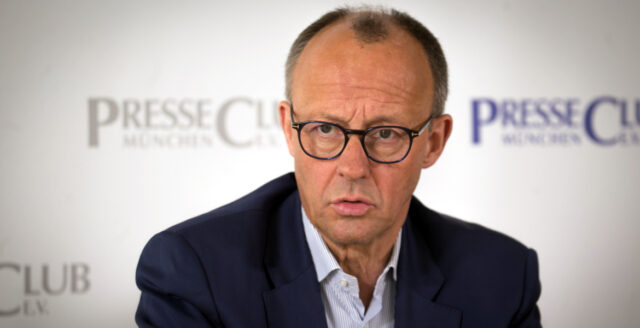In Sunday’s special elections to the German Bundestag, the Christian Democratic CDU/CSU became the largest party, while the national conservative AfD had its best election ever. The Social Democratic SPD suffers a historic defeat.
With a preliminary 28.6% of the vote, the CDU/CSU becomes the largest party in yesterday’s by-election. Party leader Friedrich Merz, who has a background at financial giant BlackRock, declared himself the winner on election night and looks set to become Germany’s next chancellor.
– Tonight we will celebrate and tomorrow we will start working, Merz said at the election rally in Berlin.
Meanwhile, the Alternative for Germany (AfD) was the big winner with 20.8% of the vote, an increase of over ten percentage points since the 2021 election and the party’s best result ever.
Meanwhile, the Social Democrats (SPD), led by outgoing Chancellor Olaf Scholz, had their worst election since the 1880s with only 16.4% of the vote. Scholz acknowledged the defeat and congratulated Merz on his victory.
Herzlichen Dank an alle Wähler und die vielen engagierten Wahlkämpfer. Die AfD konnte ihr Ergebnis verdoppeln – ein unglaublicher Erfolg, der deutlich macht: Die Bürger wollen den politischen Wandel! pic.twitter.com/7W6e3mFwKh
— Alice Weidel (@Alice_Weidel) February 23, 2025
Liberals outside the Bundestag
The Green Party receives 11.6% of the vote and the Left Party Die Linke 8.8%. The liberal FDP falls below the five percent threshold and will therefore not be represented in the German Bundestag.
The same seems to be true for BSW (Bündnis Sahra Wagenknecht), which, despite a tailwind in many previous polls, looks set to fall just below the 5% threshold. According to the latest figures, BSW is polling between 4.7 and 4.9 percent of the vote, making its entry into parliament uncertain.
One possible explanation for their loss of support is Die Linke’s unexpectedly strong result of 8.5-8.8%, which made them the largest party in Berlin. Die Linke seems to have succeeded in mobilizing left-wing voters in the final stages, which may have been at the expense of BSW.
In addition, the high turnout may have affected the chances of new parties to cross the threshold.
Relative Gewinne + Verluste (2025) im Verhältnis zur Wahl von 2021 :
CDU/CSU: +18,67 % ↗️
SPD: -36,18 % ⬇️
AfD: +101,94 % ⬆️
Grüne: -21,62 %⬇️
Die Linke: +79,59 % ⬆️
FDP: -62,61 %⬇️
BSW: +4,9 % ⬇️
(neue Partei, kein Vergleich möglich in prozentualem Zuwachs) pic.twitter.com/Q6XJLlWlRY— Corinna Cramer ️️️ (@Corinna_Cramer) February 24, 2025
Future coalition negotiations
With Germany’s new political landscape in place, intensive coalition negotiations are now underway. The CDU/CSU is expected to lead the process, but the issue of possible cooperation with the AfD remains controversial within the political establishment.
However, the CDU’s election results were worse than expected, making it more difficult to gather a majority in the Bundestag.

Merz prefers a coalition with the SPD, but this would result in a government with a very narrow margin. The alternative is a “Kenya coalition” with the SPD and the Greens, but the CDU’s sister party CSU is strongly against cooperation with the Greens.
The Christian Democrats last led the government under Chancellor Angela Merkel who resigned in 2021.
With 83.5% of eligible voters, turnout was the highest since 1990.



